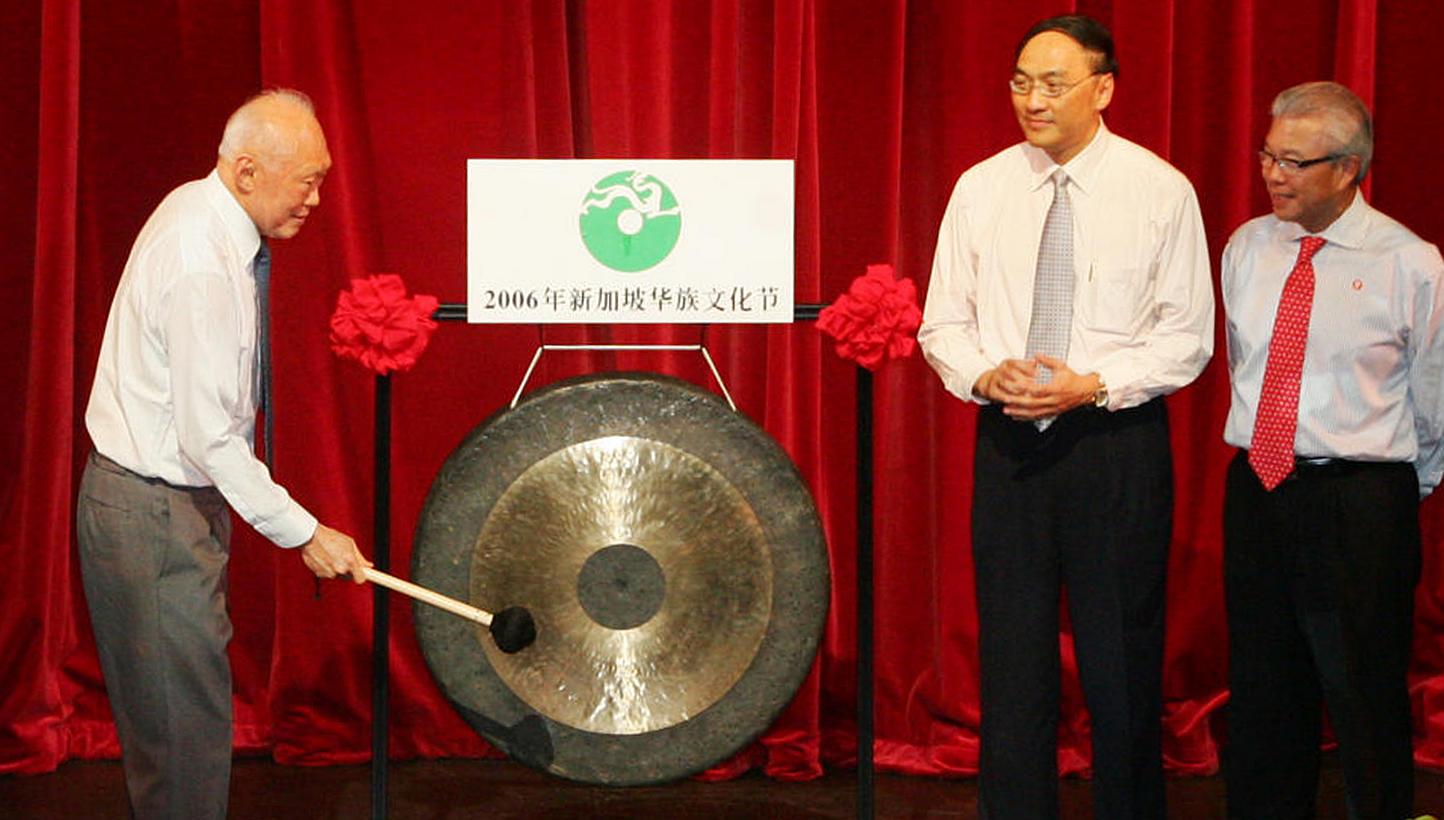Remembering Lee Kuan Yew
Remembering Lee Kuan Yew: Journey with a master teacher
Sign up now: Get ST's newsletters delivered to your inbox

Alan Chan Heng Loon, 62, is the chief executive of Singapore Press Holdings. He worked in the Government for 25 years, holding posts such as permanent secretary and principal private secretary to then Senior Minister Lee.
In 1994, I was called up for an interview with Mr Lee Kuan Yew, who was looking for a new principal private secretary.
He looked at my CV and said: "Chan Heng Loon, you don't qualify. That's the end of the interview."
I was shocked and said: "Mr Lee, may I know why I am not qualified?"
He said: "Your Chinese is no good. You only got a C6 for your Chinese. Therefore, you are not good enough to be my principal private secretary."
I told him that I had always been very proud of my command of the Chinese language and that this O-Level result had been a huge disappointment. I had, after all, been among the 10 per cent who passed the preliminary exam at Raffles Institution.
He said: "Ten per cent?"
I said: "Ya, O-Levels, I don't know what happened."
Then he started quizzing me on what I read. He was surprised that I had started reading Nanyang Siang Pau at the age of seven and that I read every copy of the Yazhou Zhoukan, Asia Weekly.
After about 30 minutes, he said: "Okay, you go and take the written exam." And I was selected.
Just one week after I became his PPS, I followed him to Taiwan where he met its leaders.
The discussion lasted from 10am to 10pm. I was taking notes. Mr Lee told me to give him the minutes the following morning - verbatim. I stayed up that night to write the minutes, and when he read them the next morning, he said: "Alan, you passed."
In 1994, Mr Lee tasked me to help him monitor the progress of the Suzhou Industrial Park project.
I also had to carry his messages to Chinese officials and convey their responses back to him. The Chinese used to laugh and call me "yu chai da ren" (the royal messenger).
During my stint as Mr Lee's PPS, the liberalisation of the financial and banking sector was also in the works. Almost every other evening, he would meet 10 bankers and quiz them on a specific topic. If he liked a banker's proposal, he would tell the man: "Write me a paper on this. Elaborate on the points."
I had to send the paper to the other nine bankers for comments. So for every paper that came in, there would be nine others as well. I had to sift through this information and organise it for myself - and sometimes I found myself lost in it. But he could read all 10 papers, distil the ideas and tell me which ones were worth pursuing.
He wanted the maximum possible opinions on a particular subject.
I was by Mr Lee's side when he met Fang Chuang Pi, the former underground leader of the Malayan Communist Party in Singapore, better known as "The Plen". The meeting took place in 1995 in Diaoyutai, China. Mr Fang had a bag with him that, out of courtesy, we didn't search. There could have been anything inside that bag, though I believe it was probably just a tape recorder. Still, throughout the conversation, while I was taking minutes, I was actually watching that bag very, very closely. The two men knew and respected each other. But there was something Mr Fang asked for that Mr Lee could not grant. So it's a bit of a regret.
Mr Lee kept his ears close to the ground. At about 11 or 12 o'clock on a Saturday, he would say: "I'd like to visit a three-room flat in XYZ precinct at 4 o'clock."
Only the manager of the town council in question and one ministry official would join him on the visit. The notice was so short that there was no time for anyone to gloss over the blemishes.
At the appointed hour, Mr Lee would walk around, inspecting the cleanliness and maintenance. Then he would go about gathering feedback from the ground. He would speak to families and people he met along corridors and ask pointed questions like: "What exactly do you do? How much do you earn?"
And wherever we went, whether it was India or Vietnam, he would always ask to visit a market. He told me: "When I walk around the market and I look at the availability of goods there, then I know whether that place is prosperous or poor."
He felt that while you can get everything in a five-star hotel, the local market was more of a dipstick of the economy.
In 1994, we were in Shenyang in Liaoning province when he asked a vendor where their pineapples were from. The answer was Taiwan. Mr Lee was taken by surprise: "Taiwan, not Hainan? You mean there is trade between China and Taiwan?"
The vendor said yes. So there were already pineapples from Taiwan in China in 1994. And Mr Lee, who always wanted to know what was going on, was able to ferret that out.


